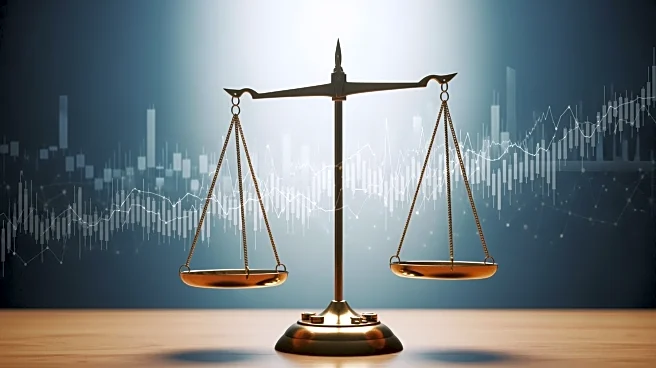What's Happening?
The Supreme Court recently held a hearing to assess the legality of tariffs imposed by President Trump's administration under the International Emergency Economic Powers Act. This act allows the president
to regulate international commerce but does not explicitly authorize tariffs. The court's decision could have significant implications for the U.S. economy, with potential impacts on inflation, Federal Reserve policy, interest rates, and the dollar. During the hearing, justices expressed skepticism about the legality of the tariffs, leading to speculation about whether they might be overturned, upheld, or partially maintained. The outcome could affect various sectors, including imported consumer goods, small businesses, construction, and technology, depending on the court's ruling.
Why It's Important?
The Supreme Court's decision on the tariffs could have wide-ranging effects on the U.S. economy. If the tariffs are struck down, it could lead to rebates for importers, potentially amounting to $100 billion, which would impact the national debt and deficit. This could result in higher interest rates as investors demand more yield for holding U.S. debt. Conversely, if the tariffs are upheld, it could expand executive powers over trade issues, benefiting domestic manufacturers and protected industries like steel and aluminum. The uncertainty surrounding the court's decision adds to the volatility in the market, especially as concerns rise over artificial intelligence-fueled market valuations.
What's Next?
The Supreme Court's ruling is expected to take months, leaving stakeholders in a state of uncertainty. If the tariffs are overturned, the administration may need to issue refunds to importers, which could be a complex and costly process. Alternatively, if the tariffs are upheld, it could reinforce the administration's trade policies. Traders are currently assigning a low probability of the tariffs being upheld, which raises questions about the potential refund process and its implications for the economy. The decision will be closely watched by investors, businesses, and policymakers, as it could shape future trade policies and economic strategies.
Beyond the Headlines
The legal challenge to the tariffs highlights the broader debate over executive power and its limits in regulating international commerce. The case could set a precedent for how future administrations approach trade policy and the use of emergency powers. Additionally, the potential refund process could strain government resources and complicate fiscal policy, impacting the broader economic landscape. The decision may also influence international trade relations and the U.S.'s position in global markets.










